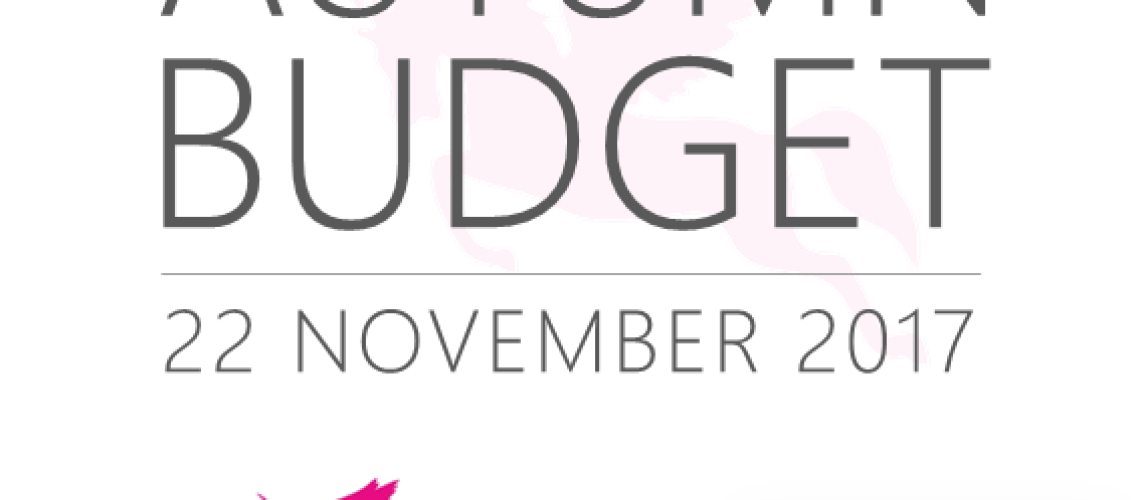This article is for information only and no recommendation is being made or should be construed from the contents of the article. Always seek independent financial advice prior to taking any action.
Today the Chancellor announced the latest Budget, describing it as aiming to “help families to cope with the cost of living”. The headline item was a reform of stamp duty for first time buyers, immediately removing the duty on properties up to £300,000, although analysts said that this would primarily benefit existing homeowners. Income tax rates were adjusted, with an increase of £350 for the personal allowance and an increase of £1,350 to the higher tax rate.
Budget 2017 : The Key Points
- Growth forecast for 2017 downgraded from 2% to 1.5%
- Stamp duty to be abolished immediately for first-time buyers purchasing properties worth up to £300,000
- Higher-rate tax threshold to increase to £46,350
- Tax-free personal allowance on income tax to rise to £11,850 in April 2018
- Fuel duty rise for petrol and diesel cars scheduled for April 2018 scrapped
Budget 2017 : In more detail
Growth
UK growth forecasts were cut following a deterioration in productivity growth, business investment and GDP growth. The annual rate of CPI inflation was also forecast to fall from a high of 3% towards the 2% target by the end of the year.
- Forecast of 1.5% growth for 2017, down from 2.0% in March.
- Outer year forecasts expect a further drop to 1.3% by 2020, returning to 1.5% in 2021
- Previous forecasts were 1.6% for 2018, then 1.7% in 2019, 1.9% in 2020, and 2% in 2021.
Borrowing
- Annual borrowing figures were more positive, forecast to be £8.4bn lower than the March estimate, and expected to fall each year to £25.6bn in 2022-23.
- Public sector net borrowing is forecast to fall from 3.8% of GDP last year to 2.4% this year, then 1.9%, 1.6%, 1.5% and 1.3% in subsequent years, reaching 1.1% in 2022-23.
- Debt will peak at 86.5% of GDP this year, then fall to 86.4% next year; then 86.1%, 83.1% and 79.3% in subsequent years, reaching 79.1% in 2022-23.
Personal tax allowances
- Tax-free personal allowance on income tax to rise to £11,850 in April 2018
- Higher-rate tax threshold to increase to £46,350
- Short-haul air passenger duty rates and long-haul economy rates to be frozen, paid for by an increase on premium-class tickets and on private jets.
Stamp Duty & Housing
- Stamp duty to be abolished immediately for first-time buyers purchasing properties worth up to £300,000
- £44bn in overall government support for housing to meet target of building 300,000 new homes a year by the middle of the next decade
- Councils given powers to charge 100% council tax premium on empty properties
- £400m to regenerate housing estates and £1.1bn to unlock strategic sites for development, as well as a review into planning permission delays for developments.
Duties
- Tobacco will continue to rise by 2% above Retail Price Index (RPI) inflation while the minimum excise duty on cigarettes introduced in March will also rise
- Duty on beer, wine, spirits and most ciders will be frozen, equating to 12p off a pint of beer and £1.15 off a bottle of whisky by next April
- Fuel duty rise for petrol and diesel cars scheduled for April 2018 will be scrapped
- Vehicle excise duty for diesel cars that do not meet latest standards to rise by one band in April 2018
- Existing diesel supplement in company car tax to rise by 1%.
Other budget announcements
Digital investment and Business
- VAT threshold for small business will remain at £85,000 for the next two years
- £500m support provided for 5G mobile networks, fibre broadband and artificial intelligence
- £540m to support the growth of electric cars, including more charging points
- Increases in business rates are to be linked to CPI measure of inflation, not higher RPI, a cut equivalent to £2.3bn
- Digital economy royalties relating to UK sales which are paid to a low-tax jurisdiction will be subject to income tax as part of a focus on tax avoidance.
Health
- £2.8bn in extra funding for the NHS in England
- £350m immediately to address pressures this winter, £1.6bn for 2018-19 and the remainder in 2019-20
- £10bn capital investment fund for hospitals up to 2022
Education
- £40m teacher training fund for underperforming schools in England. Worth £1,000 per teacher
- 8,000 new computer science teachers to be recruited at cost of £84m and new National Centre for Computing to be set up
- Secondary schools and sixth-form colleges to get £600 for each new pupil taking maths or further maths at A-level and core maths at an expected cost of £177m.
‘National living wage’
This will rise 4.4% to £7.83 an hour in April.
Welfare
Changes focused on a £1.5bn fund to address current operational issues with the universal credit rollout.
- Seven-day initial waiting period for processing of claims to be scrapped and typical first payments will be received in five weeks not six
- Claimants to get advance payments within five days of applying from January and the repayment period for advances will increase from six to 12 months.


